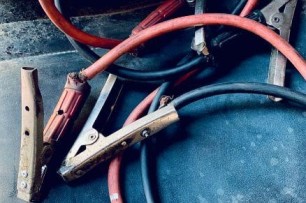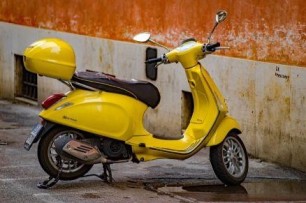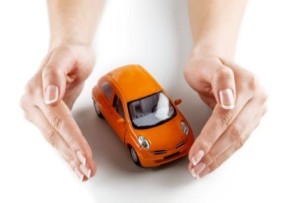General Insurance Blogs, Articles & Updates by - Magma Insurance
Have us call you
- RENEW YOUR POLICY
- BUY NEW POLICY

Plan a perfect summer vacation to these top island tourist places of India
From ice-capped mountains in the north to beautiful peninsulas in the south, India promises several travel experiences for everyone. What astonishes the travellers is the diverse local culture, cuisine, and lifestyle that you can enjoy in every part of India. The country comprises various big and small islands with rich cultural backing, and today we will look into a few of these to help you plan your next summer vacation. We bring the top 05 best islands to visit in India, which you can add to your travel bucket list.
1. Diu island:
Possibly one of the most beautiful islands on the list, Diu Island consists of beaches and heritage that are sure to enchant anyone who visits here. From forts to caves to museums, Diu offers so much to explore.
The Diu fort reveals some of the forgotten Portuguese histories with eye-catching stonework structures. After exploring the city throughout the day, a visit to Chakratirth beach is a must. With a stunning sunset and a backdrop of local food stalls, this is the perfect place for you to unwind.
2. Havelock islands:
One of the most talked-about islands, Havelock hosts tourists throughout the year. The largest island in Andaman, it's famous for its blue water, picturesque views, and adventurous water sports. It is an easy competition to foreign beaches and will give you a lifetime of memories.
3. Lakshadweep islands:
The smallest group of islands with a population of as few as 60,000 residents, Lakshadweep is where you would want to go to stay away from the tourist crowd. Spending time on the island will help you closely see the local life in an island town. Since the beautiful beaches are the island's main attraction, this is your go-to destination if all you want is to hear the waves crashing and seagulls hooting.
4. Munroe islands:
Munroe island in Kerala is a cluster of eight islands that promises an impeccable view of narrow canals connecting a network of backwaters. Munroe islands was once an unexplored territory, and only now has it started opening to tourist exploration. Munroe has beautiful rustic architectural relics that have stood the test of time. It still holds the old culture and lifestyle of the place intact. You can enjoy a wide variety of home-cooked meals while enjoying homestay and interacting closely with the locals.
5. St. Mary's islands:
A collection of 4 small islands, this place is famous for its unique rock formation similar to Ireland's. A serene island, close to the coast of Udupi, it has significance in science as well. It is believed that these unique rock formations were caused due to subvolcanic activities in Africa.
These are a few of India's many beautiful island tourist destinations, which magnetically attract people from all over India. Remember that these places are set away from the mainland; hence ensure to look into safe and comfortable travel options. Carry first aid, emergency medicines, and snacks for the commute. Insure your travel plans with general insurance for greater financial safety. You can buy general insurance online and safeguard yourself against any unprecedented expense you might incur during your trip.
Click HERE to know more about how to buy general insurance online.
Disclaimer: The information provided above is for illustrative purposes only. To get more details, please refer to policy wordings and prospectus before purchasing a policy.

Effective ways to jump-start your two-wheeler
Imagine you have an urgent meeting in five minutes, and your two-wheeler refuses to start! In such times our mind completely freezes and fails to think of any solution.
Your previous knowledge of jump-starting your bike can come in handy in a situation like this. In this blog, we will list down some of the effective ways to jump-start your two-wheeler in any case.
1. Check battery charge:
The first and foremost thing you need to do is check the charge of your two-wheeler's battery. If the backlight and the headlight are glowing brightly, the battery is okay. If not, you need to take care of it immediately because it prevents you from starting the bike or scooter. If your two-wheeler is not starting at all, it's time to resort to one of the following methods.
2. Use another bike:
Ask someone to lend their bike to jump-start your two-wheeler. First, make sure that both the vehicles are on neutral and off. Next, connect the battery terminals of both the bikes with the help of jumper cables. After connecting them, start the other motorcycle and start yours. With no extra effort whatsoever, your two-wheeler will start. After that, take off the jumper cables and keep them somewhere safe and easily accessible.
3. With the help of a portable jump starter:
Keeping a portable jump starter at home is usually advisable, especially when your bike is a few years old. This method is easy and also the quickest one:
• Check that your bike, as well as the jump starter, are in off position.
• Connect the attached cables of the jump starter to your bike and switch it on.
• Try to start your bike.
Generally, it doesn't take more than a second or two for the bike to start, but still, if it fails to start, give it a minute or two. In addition, always keep your jump starter charged.
4. Using outside stimulus:
One of the traditional ways to jump-start your bike is to apply an outside stimulus. The most used way is giving it a push from behind. All you need to do is ask your friend, neighbour, or passer-by to push your bike while sitting on it. Remember to keep your bike in second gear to ensure safety.
The other way is to find an empty stretch of road (it's always better if the road is downhill) and try to push your bike down it. Once your bike gains a needed amount of momentum, it should start. However, always remember that the downhill is not very steep and doesn't have sharp turns or traffic. These are precautions to take to avoid an accident.
It is difficult to ignore the fact that all these options can cause harm to your bike too. Incidents are unpredictable. Therefore, to avoid unexpected and unfortunate events, it is better to have bike insurance to save you from the fear of extra expenses. Ideal bike insurance can protect your pockets from the extensive costs involved in servicing and repairing your bike.
Click HERE to know more about different deals on bike insurance plans.
Disclaimer: The information provided above is for illustrative purposes only. To get more details, please refer to policy wordings and prospectus before purchasing a policy.

The merits and demerits of combi brake system in two-wheelers
The braking system in any bike is the most important mechanism. A Japanese auto giant has been granted a patent for their combination braking system (CBS) for motorbikes. The combi brake system (CBS) simultaneously applies the front and rear wheel brakes with a single lever.
According to the Ministry of Road Transport and Highways’ new requirements, all two-wheelers sold post-April 2019 with an engine capacity exceeding 125cc must be fitted with Anti-lock Braking System, while models with an engine capacity of 125cc or less must be equipped with a combi-braking system (CBS).
In this post, we're discussing CBS, including its merits and demerits. Read ahead if you wish to know about this remarkable technology.
CBS vs Traditional Braking System:
The most effective braking approach is to use both the rear and front brakes simultaneously. However, most bikers either don't possess the skills for it or simply lack patience. Even if a rider manages to apply both brakes simultaneously with less competence, the chances are that they won't be applying proportional force to both brakes.
In most circumstances, this results in unstable and dangerous braking. The Combi Brake System with equaliser minimises stopping distance. It also enhances braking stability compared to traditional braking so that you may ride with the assurance of effective brakes.
Merits of CBS:
1. Braking distance minimisation: It helps to minimise accidents caused due to unexpected braking by reducing braking distance compared to standard brakes.
2. Safer option: It is better and safer than the standard brake system. CBS aids in maintaining the bike's balance during braking and avoiding the risks of accidents.
3. Suitable for wet surfaces: CBS delivers greater performance and secure braking in slippery and bumpy road conditions.
4. Availability: Combi Brake System's price is relatively modest, and it's simple to use on standard motorcycles. In contrast to the Anti-lock braking system, which only works with disc brakes, the CBS system works with both disc/drum and drum/drum braking combinations.
Demerits of CBS:
The Combi Brake system is not ideal for high-performance two-wheelers. It also impairs the handling of motorcycle riders who perform stunts on the bike, putting them in dangerous positions when confronted with abrupt and intense events. That is why Indian law has only made it mandatory for bikes whose engine capacity is lower than 125cc.
So far, more than 10 million people ride bikes with CBS. While CBS may have some disadvantages, they are mainly concerned with high-performance two-wheelers. In moderate engine capacity bikes, the pros outweigh the cons. While the Indian government makes it mandatory to have CBS in bikes below 125cc engine capacity, it is also required to have two-wheeler insurance according to the Indian Vehicle Act.
Renew or buy the best 2 wheeler insurance online available in India. Several insurance companies are offering exciting offers for online transactions. So, purchasing 2 wheeler insurance online has become more popular, especially post-pandemic. You need to be wise and choose a policy that will be the best for your bike.
Click HERE to purchase 2 wheeler insurance online.
Disclaimer: The information provided above is for illustrative purposes only. To get more details, please refer to policy wordings and prospectus before purchasing a policy.

The best summer driving tips for long-distance drivers
With the summer approaching, we are all excited to get out and soak up the sunlight. Road trips during the summertime are at the top of everyone's bucket list. You can enjoy a long drive to sandy beaches and resorts or a journey to cooler, remote hill stations.
While we all love long road trips, they can quickly get exhausting when you're stuck in the same spot for hours on end. The landscape might be worth every bit of your patience, but driving for several kilometres at a stretch can be mentally and physically bothersome.
You may invest in motor insurance India to secure your vehicle's health but caring for your health while on a lengthy midsummer journey is equally needed. Following these tips while driving long distances can make your journey more comfortable, safe, and fruitful!
1. Plan ahead:
Planning your road trip is essential so that you manage to follow the itinerary and reach your destination on time. As you know, you're going to be driving for long hours at a stretch, so you must make sure to pack all the necessary items to carry.
Keep track of your routes and highways, petrol pumps or gas stations on your way, restaurants or motels for refreshments, and the amount of food and water you require during the drive.
2. Prepare your vehicle:
Whether you are taking a car or a van, ensure the vehicle's condition and fitness are thoroughly checked before setting off on your journey. Check if your car fits for the long drive and the fuel tank is full to its capacity before leaving. Also, check the air pressure in the tyres and examine all other technical requirements.
Ensure that you carry all necessary car documents like your car's registration certificate, motor insurance India documents, driver's license, and PUC certificate.
3. Stay hydrated and eat well:
Dehydration and an empty stomach can disturb you immensely while on the road. Dehydration for long hours can cause blurry vision and muscle cramps that are incredibly dangerous while driving. The sweltering heat can get to you and cause dizziness if you haven't eaten.
Make sure to drink enough water and consume plenty of liquids during your journey. Eat a healthy meal before taking off and eat energy-giving, light foods whenever you make stops during the trip.
4. Take enough breaks:
Driving may be stress-relieving for some individuals but sitting behind the wheel for long hours can physically strain the body. You must make regular stops along the journey and get out of the driver's seat. Stretch your arms and legs and relieve any tension in your neck and back. Inculcating this habit can make the long journey much more comfortable.
5. Keep essentials handy:
While food, water, and car documents are the most vital essentials to carry, remember to pack other travel essentials like sunglasses, caps, sunblock, a torch, and a scarf or sweater. Carry emergency hardware to fix your car if any damage is caused on the road. Keeping a first aid kit is essential as you never know when you might need it.
Long road trips under the sun are what summer dreams are made of, but they can quickly become challenging. You must not forget to secure your health and safety in all the fun. Following these tips can relieve long-distance drivers from the issues they may face on the road. Prioritising the security of your vehicle is equally important. So invest in an ideal motor insurance India policy to protect you from unexpected losses and put less pressure on your pockets in case of physical damages to your car.
Click HERE to know more about motor insurance India.
Disclaimer: The information provided above is for illustrative purposes only. To get more details, please refer to policy wordings and prospectus before purchasing a policy.

Complete guide to buy a short-term car insurance policy
Did you know that you can insure your car for a short period? Such as a few days or weeks. You must purchase short-term car insurance, often known as 'temporary car insurance.' Although it may seem strange, temporary car insurance is available, and people are already buying it.
Furthermore, short-term car insurance begins as soon as you pay for it. Some people may find that a short-term insurance policy is not ideal if they are unsure about their driving requirements. Let's take a closer look at a short-term car insurance policy in greater detail.
What exactly is short-term car insurance?
Short-term auto insurance can be valid for as little as a few hours or as long as some months, depending on the type of coverage you choose. It is possible to obtain short-term or temporary vehicle insurance coverage in some circumstances, such as when a person is not looking to purchase car insurance for more than a year.
How does short-term car insurance work?
Most Indian insurance policies fall into one of two categories: third-party liability and comprehensive insurance, with the latter being more commonly offered. In most cases, a standard automobile insurance term lasts one year. If one chooses to purchase comprehensive insurance, they will buy additional coverage through add-ons and benefit from other features. On the other hand, purchasing at least third-party insurance is mandated by law and gives the bare minimum of protection to the owner of the covered car in the event of an accident.
In situations where a person's need to drive a car is constrained by a specific time frame or a clear exit criterion, temporary car insurance may be necessary. Here, a person doesn't need to buy car insurance for a year because they don't drive a vehicle much. The time commitment could be anything from a few hours to a month or two at the most. Temporary auto insurance is uncommon in India, yet it is widespread.
Different types of short-term car insurance.
The coverage provided by short-term car insurance is minimal. It might be available in the following categories.
1. Rental car insurance:
Rental car insurance is the name given to the policy that protects a vehicle while it is being rented. Insurance policies for rentals typically include coverage for things like accidental damage and injury.
2. Gap insurance:
This insurance covers vehicles previously leased or financed through third-party financing. It provides gap insurance coverage in the event of a total loss, which is defined as damage that cannot be repaired. If the insurance provider compensates you for the fair market price of the vehicle, this policy will cover the difference.
3. Non-owners insurance:
Non-owners insurance is comparable to rental car insurance, although primarily available for private automobiles. People who borrow cars from family or friends are likely to buy non-owners insurance to protect themselves in the event of an accident.
Now that you've learned about short-term car insurance policies, you can make the most of a monthly car insurance plan to protect your vehicle. When you are only using a car for a limited time under the above three conditions, this is the most effective way of avoiding financial obligations. However, you should be prudent that not all car insurance companies offer this type of protection.
Click HERE to get more information about car insurance.
Disclaimer: The information provided above is for illustrative purposes only. To get more details, please refer to policy wordings and prospectus before purchasing a policy.

Let's understand the advantages of lightweight wheels
When you consider a bike's performance, many factors such as top speed, acceleration, engine capacity and power, mileage, accessibility of spare parts, servicing and maintenance, braking system, etc., contribute to a good outcome. Adding to this list are the wheels of your bike.
The wheels hold the tyres tightly to create a good balance and help steer the bike according to your driving directions and intensity. If you have a bike or are a bike lover, you would know that wheels come in different types, mainly lightweight and heavyweight. While each of these wheels has its pros and cons, how would we know which one is suitable for your bike?
This blog will discuss the benefits of lightweight wheels and how they add the "zing" to your motorcycle, giving it the winning edge.
So, let's understand the advantages of lightweight wheels to help you conclude which one you should choose and why.
1. We need to understand why weight matters:
To begin with, it is crucial to understand why the weight of the wheels matter. We can apply the fundamental theory of physics here. If anything is light and has lesser rotational mass (the level of resistance required to change its position or state), moving it forward is much easier. This is why it is convenient and requires less power from your bike's engine to move the lightweight wheels than the heavy ones.
2. Fuel consumption:
We all must opt for techniques to conserve fuel and make our vehicles more fuel-efficient. Lightweight wheels provide a way for your vehicle to use less power. So lesser the amount of power required to move the wheels, the less fuel consumed by the engine. There will be a minimal strain on the engine leading to minimising fuel usage.
3. Smooth movement:
Lightweight wheels, as already proved, are comparatively easier to move. In addition to the easy movement, lightweight wheels aid smooth turning and respond quickly, specifically in the corners. The smooth steering is a huge plus and excitement factor for bike enthusiasts. Besides improving gas mileage, lightweight wheels provide comfortable driving and a quality ride.
4. Need for speed:
Lightweight wheels are your best bet if you wish to achieve high speed while riding. They provide the comfort, quality and top performance of your bike. They show the immediate effect on the speed as you accelerate, thus achieving top speeds in a matter of seconds.
Get that adventure you seek by choosing the lighter wheels. But make sure you handle your motorcycle well, as lighter vehicles tend to be a little less stable. Safety is a huge concern, and you must adhere to all safety regulations. Gear up properly before you take your bike out for a ride.
We have already looked into how you need to be careful no matter the wheels you choose, and it is not always possible to anticipate any accidents or injuries you might end up in. Therefore, you must invest in bike insurance to safeguard it against the damages. You can browse all your options and deals before buying bike insurance. Select a comprehensive plan that offers the best coverage to your bike and comes with a reasonable premium.
Click HERE to know more about the benefits of bike insurance.
Disclaimer: The information provided above is for illustrative purposes only. To get more details, please refer to policy wordings and prospectus before purchasing a policy.

Try these effective ways to have a pimple-free and glowing face
Our skin and face bear a lot due to oil production, sweat, dust, and weather effects. Maintaining a clear and glowing complexion in these harsh conditions is a difficult thing. With social media taking centre stage in our lives, unreasonable beauty standards have been a constant.
However, one thing to keep in mind is that using multiple products might not be the path to glowing skin. Thousands of brands in the market promote expensive products to tempt you into buying them. Today we will look at a few inexpensive yet effective ways to have pimple-free and glowing skin.
1. Wash your face:
Pollution is a leading cause of breakouts and uneven skin. Research says that people who washed their skin twice a day saw a significant reduction in acne. Washing your face with a mild cleanser and cold water is the best way to clean your face and remove impurities.
2. Moisturise:
People often neglect moisturising when talking about acne-prone skin. However, moisturising can be significantly beneficial in the long run, no matter your skin type. Choosing non-greasy, light products that suit your skin type will help you in achieving glowing skin
3. Exfoliate:
Exfoliation helps get rid of dead skin cells that may clog pores and lead to acne. However, exfoliating daily can be harmful to your skin, hence stick to only once a week.
4. Consume water:
It’s no secret that water is the best medicine that solves a lot of your skin and health-related problems. Drinking at least 7-8 glasses of water is highly recommended as it helps wash out toxins from your body and reduces acne and scarring.
5. Avoid sugar:
If you have an excess acne problem, it is advisable to reduce your sugar intake as much as possible. A high glycemic index is a leading cause of acne.
6. Eat healthy:
Your skincare is only as effective as your diet. Having a well-balanced diet is crucial for clear and glowing skin. Consuming food items rich in vitamins and minerals is not only good for your gut health but also the health of your skin and hair. Eating clean food can show drastic changes in your skin.
7. Healthy Lifestyle:
There are countless articles on how leading a healthy lifestyle can positively affect your overall health. Regular exercise, sleeping on time and staying away from alcohol and smoking should be considered if you are aiming for a healthy life and glowing skin.
These are a few ways to give primary care to your skin and avoid pimples and dull skin. However, if the problem persists, consider going to a dermatologist. Your dermatologist will inform you about the products best suited for your skin type and any dietary changes that you may need to make.
Sometimes, the dermatologist might suggest getting blood work done to recognise any deficiency or allergies causing persistent acne and dullness. These tests and checkups can be expensive. Therefore, consider looking at online health insurance companies and choosing the best that equips you with the best healthcare treatment without stressing the huge costs payable for medical bills.
Click HERE to learn about online health insurance companies.
Disclaimer: The information provided above is for illustrative purposes only. To get more details, please refer to policy wordings and prospectus before purchasing a policy.

Understand these tips to secure your vintage two-wheeler with bike insurance
When you hear vintage, you instantly associate that with an old yet cherished classic piece. We have seen vintage lovers obsessing over them, from paintings to vases to vehicles. While vintage bikes are a preferred term, we cannot set aside that these items are old and dilapidated.
The vintage bikes are mainly out of production, and finding parts for them can be a tedious task. So how to take care of them? Should you get insurance for them? Here are a few ways to ensure your vintage bike with bike insurance.
Let's look at a few advantages of getting bike insurance for your old two-wheeler:
1. Since it's an old bike, you might face extra costs. Having insurance ensures that you don't bear expenses for the repair and maintenance of your bike.
2. With traffic and motor rules changing regularly, it is good to have insurance to avoid penalties
3. You can hassle-free renew bike insurance online and avail bonuses.
Many factors are considered before providing insurance for your bike. For example, the model, build, design, the conditions in which it is kept, how frequently it is ridden, etc. Ideally, getting a comprehensive cover would be an excellent idea for a vintage vehicle with many additional costs compared to a new bike.
Comprehensive insurance is a shield in case of accident, theft, or damage due to a third party. Moreover, comprehensive cover and add-ons can support you rest assured in the circumstances of natural calamities, riots, etc. Things that you should look out for before buying insurance for your bike are as follows:
1. Coverage:
Since everything is online off late, consider looking for a bike insurance renewal online. Look into various insurance factors and decide what is best suited for your two-wheelers.
2. IDV:
Being aware of the declared value for the current policy year is vital to know the current market value of your vehicle. This is the sum that the insurance will provide in case of theft or loss of the vehicle.
3. Utility of bike:
Since the market value of your bike depreciates every year, understanding how much you can use it will allow you to have an overall idea about the kind of coverage you would want.
4. Understanding your need:
Since you are the best person to determine what your bike needs, it is essential that you know what you expect from it. Do you want to keep it as a souvenir, or will you take it on the road? Insurance companies cater to various needs of the customer, so having a clear idea about what you need will help you understand what kind of cover your vintage two-wheeler needs.
So these are a few ways to ensure the longevity of your bike. With a plethora of options available in the market, having ample knowledge about different kinds of insurance can aid you in choosing the best for you and your bike.
The process of selecting the right insurance can be overwhelming. But with some patience and research, you will find the best options to renew bike insurance online.
Click HERE to renew bike insurance online.
Disclaimer: The information provided above is for illustrative purposes only. To get more details, please refer to policy wordings and prospectus before purchasing a policy.

